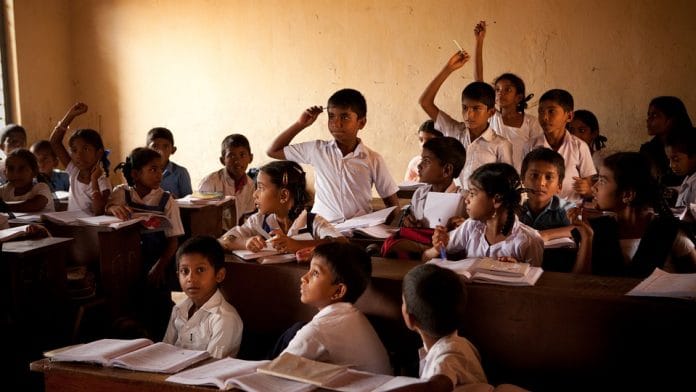New Delhi: The Rashtriya Swayamsevak Sangh (RSS) has endorsed the Modi government’s draft education policy but wants Sanskrit to be made compulsory for all students up to Class 8.
Making its observations on the policy, released by the Union Ministry of Human Resource Development in May, the RSS-backed Bharatiya Shikshan Mandal (BSM) has prepared an informal note in which it has suggested that Sanskrit should be taught compulsorily from pre-primary to Class 8.
“In addition to the three-language formula, Sanskrit should be treated as a fundamental block of the science of language and hence taught like yoga up to Class 8 to all students,” reads the note that has been sent to all the stakeholders.
The BSM has justified its suggestion, claiming that Sanskrit suffers the most under the three-language formula when English and a local language is made compulsory in schools. Most of the students end up taking Hindi as their third language in non-Hindi states and Sanskrit becomes the choice for a very few, it has said.
The RSS-backed organisation has also emphasised that not only school education but even higher education should be available in all Indian languages. “There is a need to provide education in Indian languages in engineering, medicine and other professional courses,” says the note.
The organisation has, however, welcomed the government’s proposal to allow foreign universities into the country provided that they are not handed any concessions. “We welcome the suggestion made in the in draft policy regarding Indian universities opening their campuses abroad. We do not have any objection to foreign universities coming to India,” reads the informal note. “The only thing that needs to be made very clear is that these foreign universities would not be offered any special privileges.”
Also read: Teach Sanskrit in schools, make English optional, says RSS-linked body
‘Bharat-centric’ approach in draft policy gets RSS nod
While appreciating the new draft policy for its ‘Bharat-centric’ approach, the BSM has expressed satisfaction that the draft policy has suggested renaming the HRD ministry as the education ministry.
It has, however, suggested that the culture ministry should be clubbed with the education ministry. “There are around 150 institutes under the ministry of culture that provide education in the field of art,” says the note. “If both the ministries work together, the outcome in terms of good quality education would be much better… At the time of Independence, education and culture were part of the same ministry.”
The BSM has also suggested greater autonomy to the National Education Commission. Its note further adds that while the Prime Minister should continue to head the commission, the deputy chairperson should be an eminent person of national repute instead of the HRD minister as proposed in the draft.
“This would provide greater autonomy to the commission,” says the note. “The commission should also be not merely a body that gives recommendations, it should have powers over the executive.”
The BSM has endorsed the draft policy’s recommendation to do away with the practice of contractual teachers or hiring teachers on the basis of daily wages. It feels that the practice to hire teachers on a contract is a major stumbling block to end commercialisation of education and improving the social status of teachers.
The writer is CEO of Indraprastha Vishwa Samvad Kendra, and author of the book ‘Know About RSS’.
Also read: New HRD minister Pokhriyal has a pet project – developing Sanskrit-speaking villages






